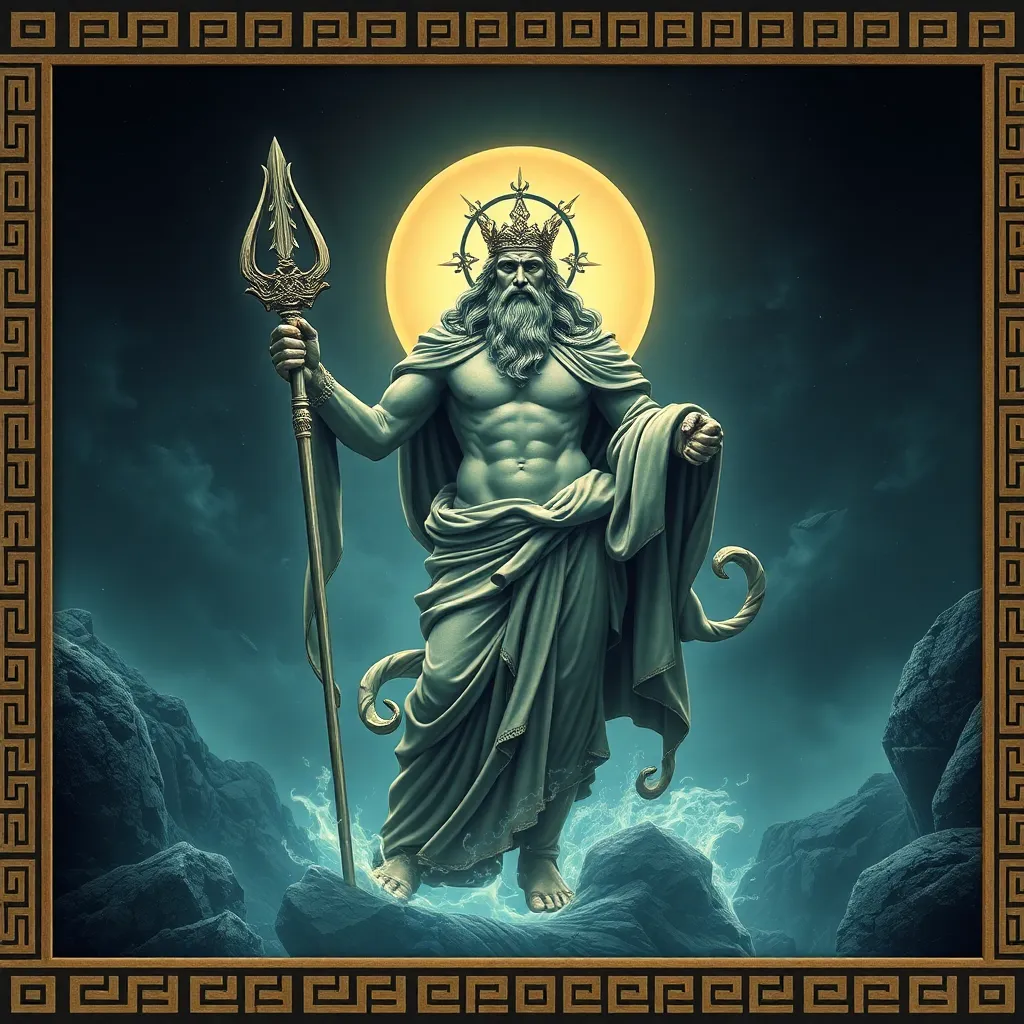The Symbolism of Hades: Death, Wealth, and the Afterlife
I. Introduction
In the rich tapestry of Greek mythology, Hades occupies a significant and multifaceted role. As the god of the Underworld, he embodies various themes, including death, wealth, and the afterlife. His presence in ancient Greek culture was both revered and feared, reflecting the complex attitudes towards mortality and what lies beyond.
This article aims to explore the symbolism of Hades, delving into his character, his relationships with other deities, and his representation of fundamental human concepts such as death and wealth. We will also examine how Hades has been interpreted through history and his relevance in contemporary society.
II. Hades as the God of the Underworld
Hades, the brother of Zeus and Poseidon, rules the Underworld, a realm where souls of the deceased reside. His domain is often depicted as a dark, shadowy place, guarded by the fearsome three-headed dog, Cerberus. The Underworld is not merely a place of torment; it is a necessary aspect of existence, symbolizing the balance of the universe.
- Relationship with Other Gods: Hades’ relationship with his siblings is complex. While Zeus governs the sky and Poseidon the sea, Hades presides over the dead. He is often portrayed as a solitary figure, which adds to his enigmatic nature.
- Mythological Figures: Hades is frequently associated with figures such as Persephone, his wife, whose abduction from the surface world represents the cyclical nature of life and death.
The role of Hades in Greek mythology is pivotal, as he represents the inevitable conclusion of life and the mysteries surrounding it. His presence serves as a reminder of the natural order and the importance of respecting the dead.
III. The Symbolism of Death
Hades is intrinsically linked to the concept of death. He symbolizes the unavoidable reality of mortality that all living beings must confront.
- Representation of Death: Hades embodies the acceptance of death as a part of life. He is not a figure of evil, but rather a necessary aspect of existence.
- Myths Associated with Death: Numerous myths illustrate Hades’ role, such as the story of Orpheus, who ventured into the Underworld to retrieve his beloved Eurydice, showcasing the depth of love and loss.
Hades is pivotal in understanding the cycle of life and death, emphasizing that every ending entails a new beginning. This cyclical view of existence is fundamental to ancient Greek thought.
IV. Hades and Wealth
Interestingly, Hades is also associated with wealth and the riches of the earth. This duality highlights the complexity of his character.
- Connection to Earth’s Riches: The earth is seen as a source of both life and death. As the ruler of the Underworld, Hades governs the minerals and treasures buried beneath the soil.
- Plouton: Hades is often referred to as Plouton, a name that signifies wealth. This aspect suggests that wealth is linked to the land and its resources.
Symbols of wealth associated with Hades include precious metals and the bounty of the earth, which reflects the idea that both life and death contribute to the richness of existence.
V. The Afterlife and Its Significance
As the ruler of the afterlife, Hades holds a crucial role in determining the fate of souls after death.
- Journey of Souls: Upon death, souls are believed to travel to the Underworld, where they face judgment based on their earthly deeds. This journey is pivotal in understanding the moral framework of ancient Greek society.
- Significance of Judgment: The concept of judgment reinforces the idea of accountability, suggesting that one’s actions in life have consequences in the afterlife.
In contrast to other cultures that present a binary view of heaven and hell, Hades represents a more nuanced understanding of the afterlife, where souls exist in a realm that reflects their lives on earth.
VI. Cultural Interpretations of Hades
Hades has been represented in various forms throughout history, from ancient art to modern media.
- Ancient Greek Art and Literature: Hades appears in many classical works, including Homer’s “The Iliad” and “The Odyssey”, and is often depicted in pottery and sculptures.
- Modern Interpretations: Today, Hades is frequently portrayed in films, literature, and video games, often reinterpreted as a more complex character than the traditional representation of a dark god.
The evolution of Hades’ symbolism through time reflects changing attitudes towards death and the afterlife, illustrating how cultural perceptions shape the understanding of mythology.
VII. Hades in Contemporary Context
In modern culture, Hades remains a relevant figure, influencing various belief systems and philosophical discussions.
- Relevance in Modern Culture: Hades is often referenced in discussions about mortality, wealth, and the human experience, serving as a reminder of the complexities of life.
- Psychological and Philosophical Symbolism: Hades can symbolize the subconscious fears surrounding death and the unknown, prompting reflection on life’s transient nature.
His impact on contemporary views of death and wealth continues to resonate, inviting exploration of how ancient ideas inform modern understanding.
VIII. Conclusion
This exploration of Hades reveals the depth of his symbolism as a representation of death, wealth, and the afterlife. From his role as the ruler of the Underworld to the intricate connections he shares with other mythological figures, Hades embodies the complexities of human existence.
As we reflect on the key points discussed, it becomes clear that Hades is not merely a figure to be feared; rather, he invites contemplation on the nature of mortality and the wealth that can be found in understanding it. The enduring legacy of Hades serves as a testament to the intricate relationships between death, wealth, and the afterlife, emphasizing that these themes are woven into the very fabric of our lives.




